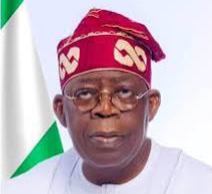
President Tinubu
Minister says Tinubu plans committee to stem recurring tanker explosions
President Bola Tinubu is setting up a high-powered committee to probe the recurrence of tanker explosions and implement safety measures to forestall incessant tragedy.
The Minister of Information, Mohammed Idris, on Sunday, disclosed this at the Palace of the Emir of Suleja, Niger State.
The minister was in the palace to sympathise with victims of Saturday’s tanker explosion in Dikko Junction, in the Gurara Local Government Area of Niger State.
According to him, members of the committee would be drawn from the Ministry of Information and National Orientation, the Ministry of Humanitarian Affairs, the Independent Petroleum Marketers Association of Nigeria (IPMAN), tanker drivers’ associations and other stakeholders.
The minister also promised that his ministry would start enlightenment campaigns on the safe movement of fuel tankers, road safety habits and the dangers of scooping leaked fuel.
The Minister of Humanitarian Affairs, Disaster Management and Social Development, Nentawe Yilwatda, and top government officials accompanied the Minister of Information to Niger State.
After leaving the palace of the Emir, the delegation planned to also visit various hospitals in Suleja where 55 injured individuals were rushed for urgent medical attention.
They would also visit the Dikko junction where the accident occurred.
Indeed, at least 86 persons were said to have died and 55 others were injured on Saturday, January 18, 2025, whilst scooping fuel from a fallen tanker.
Earlier in January 2025, at least five persons were killed when a tanker ladened with petrol lost control and burst into flames in the Agbor area of Delta State.
In October 2024, a fuel tanker explosion in Jigawa State killed more than 170 people, with scores injured.
Tanker explosions occurred in Nigeria at a time when petrol has become a precious commodity in Africa’s most populous country, which is suffering its worst economic crisis in a generation.
Many are struggling to get access to gasoline, as its price has spiked more than fivefold since President Bola Ahmed Tinubu took office in May 2023.
Inflation has been peaking at more than 30 per cent for months, reaching an almost three-decade high of over 34 per cent in June, down to 32.7 per cent in September.
More than half — 56 per cent — of Nigerians are living under the poverty line, up from 40 per cent in 2018, according to a World Bank report.
At least 59 people died in September 2024 when a fuel tanker collided with a truck carrying passengers and cattle in northwestern Niger state.
